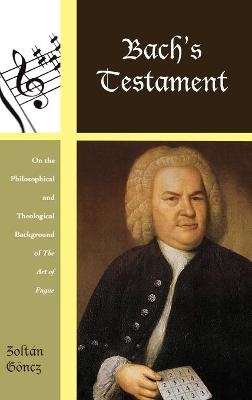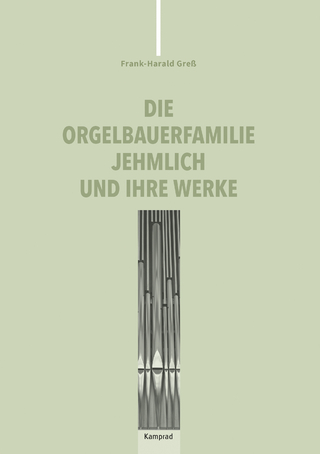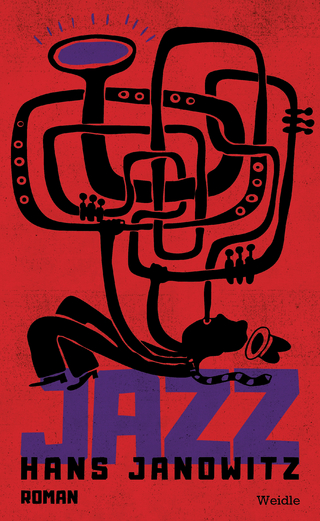
Bach's Testament
On the Philosophical and Theological Background of The Art of Fugue
Seiten
2012
Scarecrow Press (Verlag)
978-0-8108-8447-2 (ISBN)
Scarecrow Press (Verlag)
978-0-8108-8447-2 (ISBN)
In Bach's Testament:On the Philosophical and Theological Background of The Art of Fugue, Goncz probes into the philosophic-theological background of The Art of Fugue, revealing the special structures the undergirded the 1993 reconstruction. Bach's Testament investigates the reconstruction's metaphysical dimensions, focusing on the quadruple fugue.
Written late in his life, J. S. Bach’s The Art of Fugue has long been admired—in some quarters revered—as one of his masterworks. Its last movement, Contrapunctus 14, went unfinished, and the enigma of its incompleteness still preoccupies scholars and musical conductors alike. In 1881, Gustav Nottebohm discovered that the three subjects of the movement could be supplemented by a fourth. In 1993, Zoltán Göncz revealed that Bach had planned the passage that would join the four subjects in an entirely unique way. This section has not survived, but, as Göncz notes, it must have been ready in the earliest phase of composition since Bach had created the expositions of the first three subjects from its “disjointed” parts. Göncz then boldly took on the task of reconstructing the original “template” by putting together the once separate pieces.
In Bach’s Testament: On the Philosophical and Theological Background of The Art of Fugue, Göncz probes the philosophic-theological background of The Art of Fugue, revealing the special structures that supported the 1993 reconstruction. Bach’s Testament investigates the reconstruction’s metaphysical dimensions, focusing on the quadruple fugue. As a summary of Zoltán Göncz’s extensive research over many years, which resulted in the completion of the fugue, this work explores the complex combinatorial, philosophical and theological considerations that inform its structure. Bach’s Testament is ideally suited not only to Bach scholars and musicologists but also intellectual historians with particular interests in 18th-century religious and philosophical ideas.
Written late in his life, J. S. Bach’s The Art of Fugue has long been admired—in some quarters revered—as one of his masterworks. Its last movement, Contrapunctus 14, went unfinished, and the enigma of its incompleteness still preoccupies scholars and musical conductors alike. In 1881, Gustav Nottebohm discovered that the three subjects of the movement could be supplemented by a fourth. In 1993, Zoltán Göncz revealed that Bach had planned the passage that would join the four subjects in an entirely unique way. This section has not survived, but, as Göncz notes, it must have been ready in the earliest phase of composition since Bach had created the expositions of the first three subjects from its “disjointed” parts. Göncz then boldly took on the task of reconstructing the original “template” by putting together the once separate pieces.
In Bach’s Testament: On the Philosophical and Theological Background of The Art of Fugue, Göncz probes the philosophic-theological background of The Art of Fugue, revealing the special structures that supported the 1993 reconstruction. Bach’s Testament investigates the reconstruction’s metaphysical dimensions, focusing on the quadruple fugue. As a summary of Zoltán Göncz’s extensive research over many years, which resulted in the completion of the fugue, this work explores the complex combinatorial, philosophical and theological considerations that inform its structure. Bach’s Testament is ideally suited not only to Bach scholars and musicologists but also intellectual historians with particular interests in 18th-century religious and philosophical ideas.
Zoltán Göncz has been a researcher and lecturer at the department of hymnology of John Wesley Theological College in Budapest since 2008. He served as music editor at the National Philharmonic Agency between 1983 and 1997, then worked in the same capacity with the musical ensembles of the Hungarian Radio from 1997 to 2008.
| Reihe/Serie | Contextual Bach Studies |
|---|---|
| Verlagsort | Lanham, MD |
| Sprache | englisch |
| Maße | 159 x 236 mm |
| Gewicht | 431 g |
| Themenwelt | Kunst / Musik / Theater ► Musik ► Instrumentenkunde |
| Kunst / Musik / Theater ► Musik ► Klassik / Oper / Musical | |
| ISBN-10 | 0-8108-8447-X / 081088447X |
| ISBN-13 | 978-0-8108-8447-2 / 9780810884472 |
| Zustand | Neuware |
| Informationen gemäß Produktsicherheitsverordnung (GPSR) | |
| Haben Sie eine Frage zum Produkt? |
Mehr entdecken
aus dem Bereich
aus dem Bereich
Buch | Softcover (2024)
Edition Zwischentöne (Verlag)
19,00 €
Roman
Buch | Hardcover (2024)
Wallstein Erfolgstitel - Belletristik und Sachbuch (Verlag)
20,00 €


